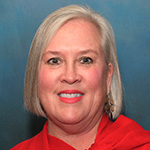Mental Health First Aid
Similar to CPR, MHFA is a temporary intervention.
Did you know that around 746,000 Kentuckians have a diagnosable mental health condition? That is around 10 times the population of Bowling Green. Most of us would know how to help if we saw someone having a heart attack - if trained, we’d start CPR or, at the very least, call 911. But not many of us would know how to respond if we saw someone having a panic attack or if we were concerned that a friend or coworker might be showing signs of alcoholism or depression.
Mental Health First Aid (MHFA) takes some of the fear and hesitation out of starting conversations about mental health and substance use problems. The training gives participants an improved understanding of identifying and addressing a potential mental illness or substance use disorder safely and responsibly. The National Council for Mental Wellbeing administers the MHFA certification. It includes a basic understanding of depressive disorders, anxiety disorders, post-traumatic stress disorder, bipolar disorder, eating disorders, substance use disorders, and psychotic disorders.
Like CPR, individuals certified in Mental Health First Aid are not trained professionals. MHFA is a choice, and there is no liability for a mental health first aider if they act in a situation. It is nonjudgmental listening and reassurance and a temporary intervention until the individual can get the assistance they need. An important aspect of MHFA is also keeping yourself safe.
Some Kentucky League of Cities staff members are certified in adult Mental Health First Aid designed for laypeople, which teaches participants to recognize signs of mental health issues and practice how to respond. There are also specific curricula for law enforcement, EMS/firefighters, and teenagers, and other courses are being developed for groups such as educators.
In some cases, 911 is the appropriate response. In other cases, the Kentucky 988 suicide and crisis line is the appropriate response. In many cases, approaching a family member, friend, coworker, or even a stranger with a caring, nonjudgmental conversation can reduce their stress and provide relief for someone to recognize their situation.
When more people are equipped with the tools they need to start a dialogue, more people can get the help they need. Mental health first aiders are a vital link between someone experiencing a mental health or substance use challenge and appropriate support.
Mental Health America of Kentucky provides full-day virtual and in-person training, including for specific groups. For more information on any of the training modules, contact Mental Health America of Kentucky Executive Director Marcie Timmerman.


